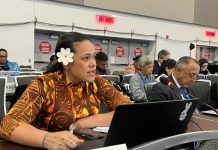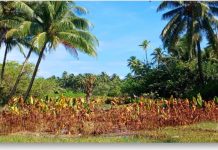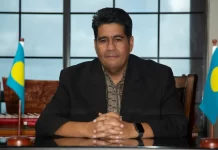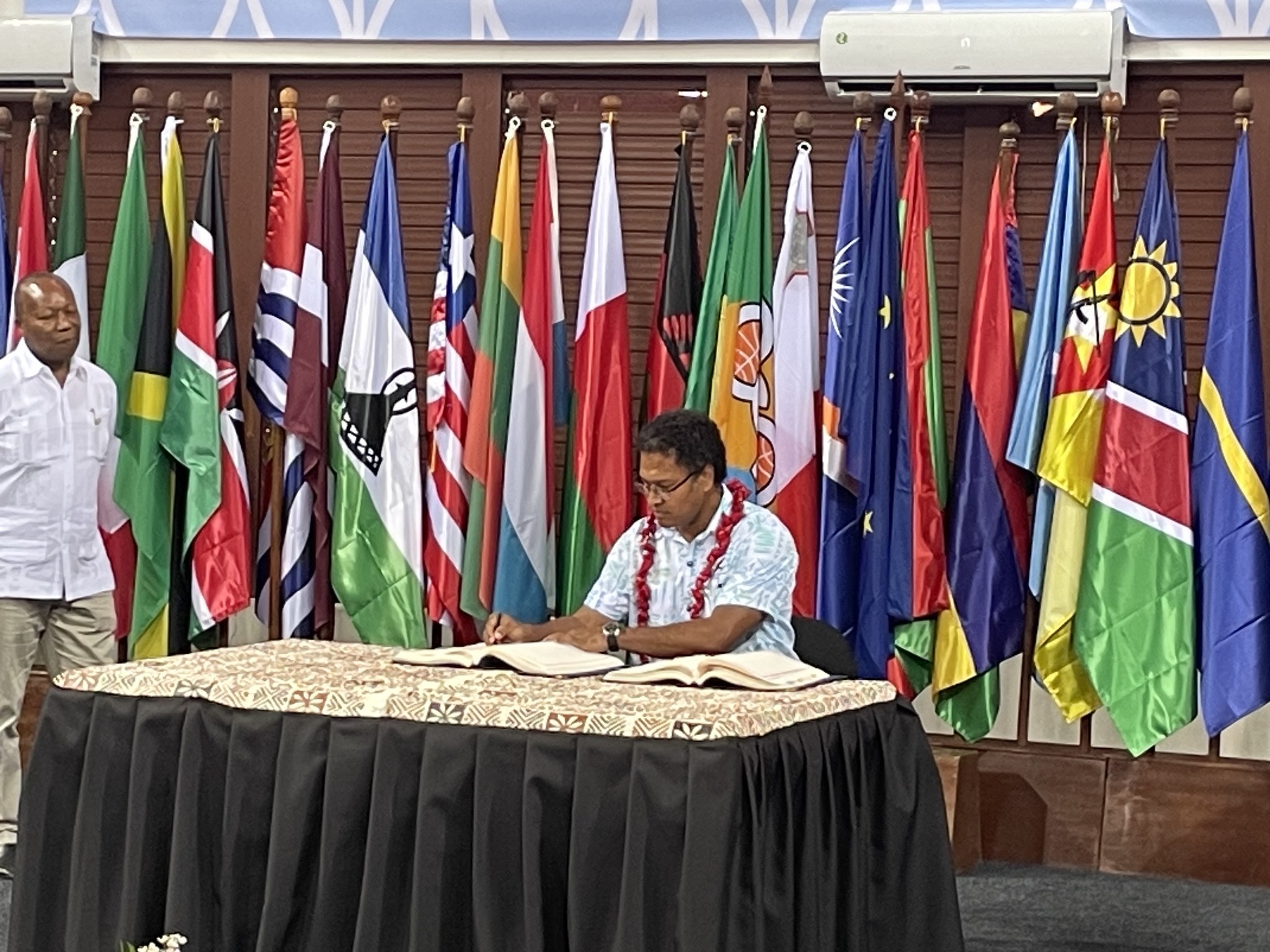Fiji participated in the signing of the Samoa Agreement, a new framework of partnership between the European Union (EU) and the Organisation of African, Caribbean and Pacific States (OACPS) that will guide them for the next 20 years.
The Samoa Agreement replaces the Cotonou Agreement, which has governed OACPS-EU relations since 2000.
The signing ceremony took place in Apia, Samoa Wednesday where representatives of the OACPS and EU were present. The ceremony was the highpoint of a two-day meeting of the OACPS Council of Ministers followed by a Joint Council of OACPS & EU Ministers hosted by the Government of Samoa. The Agreement was signed by 44 members of the OACPS on one part and the EU and its 27 member states on the other.
Fiji’s envoy with responsibility for the EU-OACPS relations, Ambassador Luke Daunivalu, represented the Government of Fiji.
He said that, “The signing of the new agreement in Samoa is a proud moment for the Blue Pacific Continent. The Samoa Agreement represents a paradigm shift, enabling Fiji and members of the OACPS to renew their cooperation with the EU as equal partners”.
The Samoa Agreement has a foundational section and will be complimented by distinct regional protocols to be tailored for Africa, the Caribbean, and the Pacific. Each protocol has specific governance measures to oversee and direct relations with the EU and each region.
Highlighting the importance of the ‘’Pacific Way’ in the formulation and implementation of the Pacific regional protocol, Daunivalu said that, “We are guided in those efforts by the Blue Pacific’s vision to be a Zone of Peace, as declared by the Prime Minister and Minister for Foreign Affairs, Sitiveni Rabuka, and welcomed by the Pacific Islands Forum Leaders last week.”
The Agreement provides for both financial and non-financial resources that will be channelled through the EU’s Neighbourhood, Development and International Cooperation Instrument (“NDICI” – Global Europe) to implement and achieve the objectives set out in the agreement. It will prioritise resource allocation to countries most in need, such as fragile and vulnerable countries including the Small Island Developing States (SIDS).
The parties to the Agreement will complete their domestic legal approval processes before depositing their instruments of ratification. The Agreement will come into force once two-thirds of the OACPS member states and the EU have ratified it. Until then, it will apply on a provisional basis from January 1, 2024 to those countries that have signed it. This will ensure uninterrupted engagement between the OACPS and the EU.
The Samoa Agreement is a significant milestone for Fiji as it will strengthen its ties with both the EU and the OACPS. It will support Fiji’s priority developments in areas such as climate change adaptation and mitigation, sustainable development, maritime security, human rights, trade and investment, amongst others.
Immediate actions to operationalize the Agreement will include the establishment of institutions outlined in the agreement at both OACPS and regional levels, along with the formulation of rules of procedures to govern and support the functioning of those institutions.
The OACPS-EU partnership is one of the oldest and most comprehensive frameworks for cooperation between the EU and its partners, uniting over 1.5 billion people across four continents and commanding more than half of the seats at the United Nations.
SOURCE: FIJI GOVT/PACNEWS














